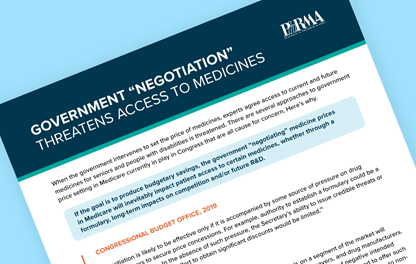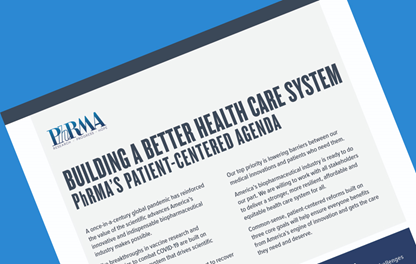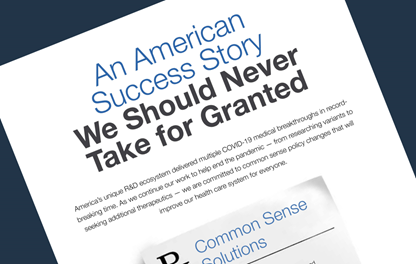H.R. 3 Could Mean Delayed Access to Medicines, If They Are Available at All

In countries with similar government price setting policies to H.R. 3, patients have access to fewer new medicines and wait longer to get the medicines they need. Decisions made by foreign governments about what medicines and therefore, what patients, are worth has led to discrimination against the elderly, the chronically ill and people with disabilities and has had devastating consequences for many. It is naïve to think the same couldn’t happen in the United States if this policy were implemented.
- While nearly 90% of new medicines launched globally in the past decade are currently available to patients in the United States, roughly half are available to patients in other countries like France and Canada.
- For example, a groundbreaking treatment for drug-resistant forms of HIV approved in the United States wasn’t available in another H.R. 3 country until 18 months later. Today, that treatment is still not available in Australia, Canada, Japan or the United Kingdom.
H.R. 3 Could Result in the Loss of More Than 1 Million U.S. Jobs

The biopharmaceutical industry currently supports more than 4 million U.S. jobs and directly employs more than 800,000 workers in the United States. One third of industry jobs are in high-wage STEM occupations, like engineering and physical and life sciences. Additionally, the industry supports manufacturing and transportation roles. All of these jobs are put at risk under H.R. 3 because of the significant impact it could have on the functioning of the industry in the United States.
An analysis by Vital Transformation found H.R. 3 could result in the loss of nearly 180,000 jobs in California and more than 70,000 jobs in New Jersey alone.
H.R. 3 Jeopardizes Medicine Development for Debilitating and Life-threatening Conditions

The United States has a collaborative research ecosystem system that fosters and supports medical innovation. It also makes it possible for America’s biopharmaceutical industry to work hand-in-hand with government agencies, universities and hospitals to develop life-saving vaccines and treatments. As a result, America is currently the global leader in medical innovation. We cannot take that leadership for granted by implementing policies like H.R. 3 that undercut medical innovation.
Vital Transformation estimates there would be nearly a 90% reduction in new medicines developed by small U.S. biotech companies if H.R. 3 were implemented.
H.R. 3 Could Threaten the Access to Medicines that Families Need
Hear from Valen about how important it is to ensure access to medicines for rare diseases with no cures today.
Building A Better Health Care System

Medicines should be more affordable for patients in the United States and America’s biopharmaceutical industry is ready to do our part. We support policies aimed at making medicines more affordable and building a more just, equitable health care system. Common sense, patient-centered reforms built on these goals will help ensure everyone benefits from America’s engine of innovation and gets the care they need and deserve.
We are willing to work with all stakeholders to deliver a stronger, more resilient, affordable and equitable health care system for all. H.R. 3 is not the answer.










